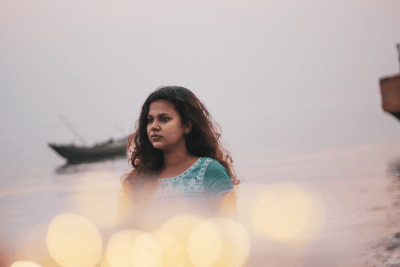Child Sexual Exploitation is the use or the condoning of a child as a sexual object to meet the sexual needs/desires of an adult. Although it has been 31 years since the signing of the Convention on the Rights of the Child (CRC) and 26 years since it got through the parliament, the contractual principles still have not sufficiently integrated into children’s lives.
According to the Turkish Statistical Institute’s data, child sexual exploitation increases every year. The number of child victims increased from 74.064 to 83.552 in two years (2014-2016). The General Directorate of Criminal Records and Statistics shows the percentage of convicts of child sexual exploitation increased from 42.5% (in 2006) to 58.8% (in 2016). The percentage of children who are victims of sexual crimes has risen by 33% from 2014 to 2016.
There are 30 Child Monitoring Centers in 27 cities in Turkey. Between January 2011 and May 2016 21.068 cases applied to Child Monitoring Centers. 85% of the cases are girls and 15% are boys.
According to Justice Ministry statistics published in 2019, in Turkey 49.057 lawsuits were filed for Crimes Against the Sexual Inviolability. 22.689 of these, or possible to say nearly half, were sexual exploitation crimes against children.
Accordingly, while the number of crimes in child sexual exploitation cases was 17.589 in 2012, this number increased to 22.689 in 2019. In other words, there is an increase of 29 percent in child sexual exploitation cases. In 2012, 10.891 cases, which is approximately 52 percent of the cases filed on this subject, were convicted.
According to the figures reflected in the judicial authorities, the highest child sexual exploitation crime numbers are in the Marmara Region and the lowest in the Eastern Anatolia Region. On the contrary, the highest conviction numbers are in the Aegean Region with 60 percent, and the lowest in the Southeastern Anatolia Region with 47 percent.
Moreover, the region with the highest number of acquittals was the Eastern Anatolia Region with 27,2 percent. However, these numbers are controversial because the data are based on reports; it has well known that the number of unreported and hidden cases is overmuch. The number of victim girls is considerably higher than that of boys, even though boys are also subjected to exploitation.
The vast majority of those children stay with their parents and reside in cities. Although it is difficult to say that educational status has a direct effect on sexual exploitation, the data shows that especially high school and primary school students are more exposed.
Professionals such as teachers, doctors, nurses, and youth workers who encounter children constantly oblige to report the situation under Articles 278-279-280 of the Turkish Penal Code when they see signs of abuse or neglect in children.
The General Directorate of Child Services under the Ministry of Family, Labour, and Social Services is responsible for the coordination and delivery of protective, preventive, developing, guiding, and rehabilitative services for children. On the in-depth examination, the Ministry has a very family-oriented understanding policy, and practices tend to support the child in need of protection within the family. In some cases where there is no trouble for the child to stay with parents and the need is due to economic poverty, the Ministry provides financial assistance to the family.
However, when the child staying with his family is considered objectionable, the conditions of foster family or adoption service, which are also family-oriented services, are addressed with priority. As can be understood, the Ministry priorities the child’s benefit from a family-oriented service model without being taken into institutional care. Various institutions within the Ministry also provide services for children who cannot benefit from the family-oriented service model. With the changes in the establishment structures, there is a tendency from the dormitory type model to the home type model.
Although many legal regulations are implemented to protect children in our country, serious violations of rights are experienced in terms of education, health, social services, civil rights, the right to participate, and the right to be protected from all kinds of maltreatment, neglect, and abuse. It is possible to say that children can not benefit equitably from their rights to life, development, protection, and participation. Also, studies on this subject are not at a sufficient level.
For example, The World Health Organization (WHO) announced on June 19 that one billion children around the world, that is, nearly half of the child population, are experiencing physical, sexual, and psychological violence, and this situation is exacerbated by the restrictions imposed by the coronavirus epidemic.
In May 2020, Istanbul, Izmir, Diyarbakir, and Gaziantep Bar Association had prepared many reports on CSE. According to these reports, the number of lawyers assigned to child sexual exploitation decreased significantly during the epidemic period. The reason for this remarkable diminution is the inability of children to access protective mechanisms.
The visibility of child sexual exploitation, which has a special place in the subject of abuse, is becoming a growing problem. The state and society both have the responsibility to prevent the child from sexual exploitation. This broad responsibility is not limited to the obligation to report abuse but also includes the socialization of children from birth. It should always be kept in mind that being indifferent to children’s needs and expectations can make them both victims and perpetrators.

